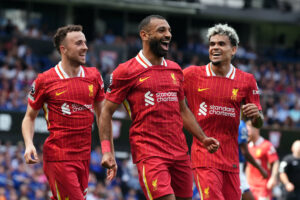It is safe to say that Sunderland have had more than their fair share of disappointments. Multiple relegations, including a season in what is now League One (a division they had never played in until 1987), 15 and 19 point seasons and general disappointment and heartbreak.
With every great manager the club have had, there seems to have been at least one poor one, arguably more. After dismissing Simon Grayson, the club have recently appointed their 11th permanent manager, since Roy Keane left in 2008, in Chris Coleman. Fans will have everything crossed that Coleman will fare better than those who are looked at below.
Here is a look at some of the managers that fans wish had never stepped foot on Wearside.
Five of the Worst Sunderland Managers of all Time
Lawrie McMenemy
Sunderland supporters may want to skip this part due to the pain this era caused and still causes to this day. During the late 1970’s and early 1980’s, Lawrie McMenemy was a much sought-after manager. His success at Southampton had clubs such as Manchester United wanting him to be their manager. In 1985 Sunderland were relegated from the top flight. They turned to McMenemy to win them promotion at the first attempt, making him the highest paid manager in the country in the process. The Black Cats were now odds-on favourites for promotion.
McMenemy’s spell started badly and got worse. His first five games in charge saw five defeats without scoring. During this first season in charge, the Black Cats narrowly avoided relegation for the second successive season. If fans thought this was bad, it was about to get much worse.
During the 1986/87 season, Sunderland looked like they had turned a corner and occupied a play-off place for a short time. This, however, proved to be a false dawn. Results and performances got worse as the team dropped down the division at an alarming rate. Relegation was once again a real possibility. With several games remaining, McMenemy resigned. Club legend Bob Stokoe took temporary charge but even he was powerless to prevent relegation to English football’s third tier for the first time in their history.
Terry Butcher
Terry Butcher signed initially as a player in 1992 near the end of his career. After Malcolm Crosby was sacked, Butcher took the job. The club were once again flirting with relegation to England’s third tier. The new manager was not having the desired effect, and the club were in real danger. Butcher himself was also feeling the pressure as he turned on fans after one away game. Butcher, however, kept the club up, just. Although, it was only due to other results going Sunderland’s way.
He was given the largest summer transfer budget ever given to a manager at the club. He signed several players and things looked bright for a good season. Things did not look bright for long though. A car accident involving most of his signings did not help but even so, poor performances and results saw the team once again battling at the wrong end of the table. After five successive defeats, Butcher resigned. A top defender in his day; however, he will not be remembered for his managerial skills, especially on Wearside.
Howard Wilkinson
Wilkinson succeeded Peter Reid and at the time, although not playing too well, the team had eight points from nine games. Wilkinson’s performance as manager was so bad he did not even keep his job until the end of the season. Sunderland were relegated that season after picking up just 11 more points. Of the terrible 19 points won, 18 were collected before Christmas. Once a league winner with Leeds United, his spell at Sunderland can be summed up in one word; disaster.
David Moyes
The former Everton and Manchester United boss was appointed during the summer of 2016 after England came calling for Sam Allardyce. The team he had inherited had survived a relegation battle the previous season but were looking improved and confidence was growing. A couple of key signings could have given the team a good chance of having a successful season.
Moyes almost immediately told all that the team would be in a relegation fight. He spent a small fortune on Chelsea defender Pappy Djilobodji, who had played just several minutes for them previously. He also broke the clubs transfer record when he bought the talented but young and inexperienced Didier Ndong. Ex-Everton and Manchester United players who Moyes knew well were also brought in. Unfortunately, their best days were either well behind them, they were young or they were injury prone.
Moyes’ prediction, not surprisingly, was correct. The club struggled from the off and relegation was a real possibility very early in the season. Performances were poor at best but Moyes refused to take any blame and kept faith in underperforming players whilst continuing to alienate others. He also had an altercation with a female reporter, something which landed him in trouble with the FA.
With the team lacking confidence and direction from the manager, the club were relegated without a fight. Confidence in and around the club was so low the team failed to win at home from December. It is a run that continues to this day.
Simon Grayson
After just four months in charge and one league victory, Simon Grayson was sacked after the 3-3 home draw against the then bottom of the table club Bolton Wanderers. The ex- Leeds United and Preston North End manager was seen as the ideal man to steady the Sunderland ship after several disappointing seasons which ended in relegation from the Premier League. He spent just £1.25 million but brought in 10 players. Even though promotion was not expected, the squad looked good enough for mid-table and maybe even challenge for a play-off position.
The team started quite well with two draws and one victory and were playing well. This proved a false dawn as results and performances went from bad to worse as the team slipped to second bottom of the Championship. The team’s inability to defend and carry out the basics of the game, which led to many goals being conceded, ultimately led to Grayson’s dismissal.
Few, if any, shed a tear when his departure was announced just 16 minutes after the final whistle of his last game in charge. His record of just one league win and an overall win percentage of just 16.7% (this includes two victories in the league cup against lower league opposition) does not make good reading. He left as the side looked no nearer to recording their first home win since December 2016. Having had success at previous clubs, he looked like the man the club needed. He, unfortunately, appeared to be out of depth during his time on Wearside.
Five of the Best Sunderland Managers of All Time: Part One
Five of the Best Sunderland Managers of All Time: Part Two
Main Photo






